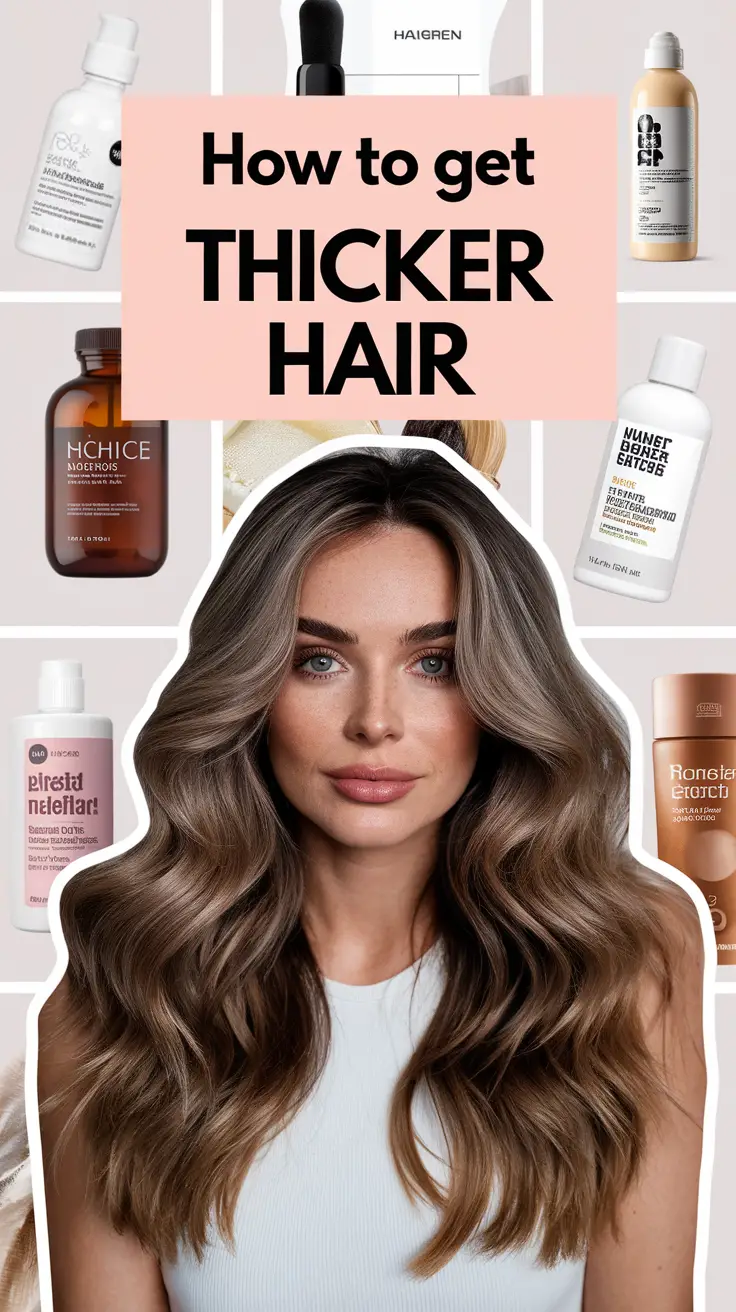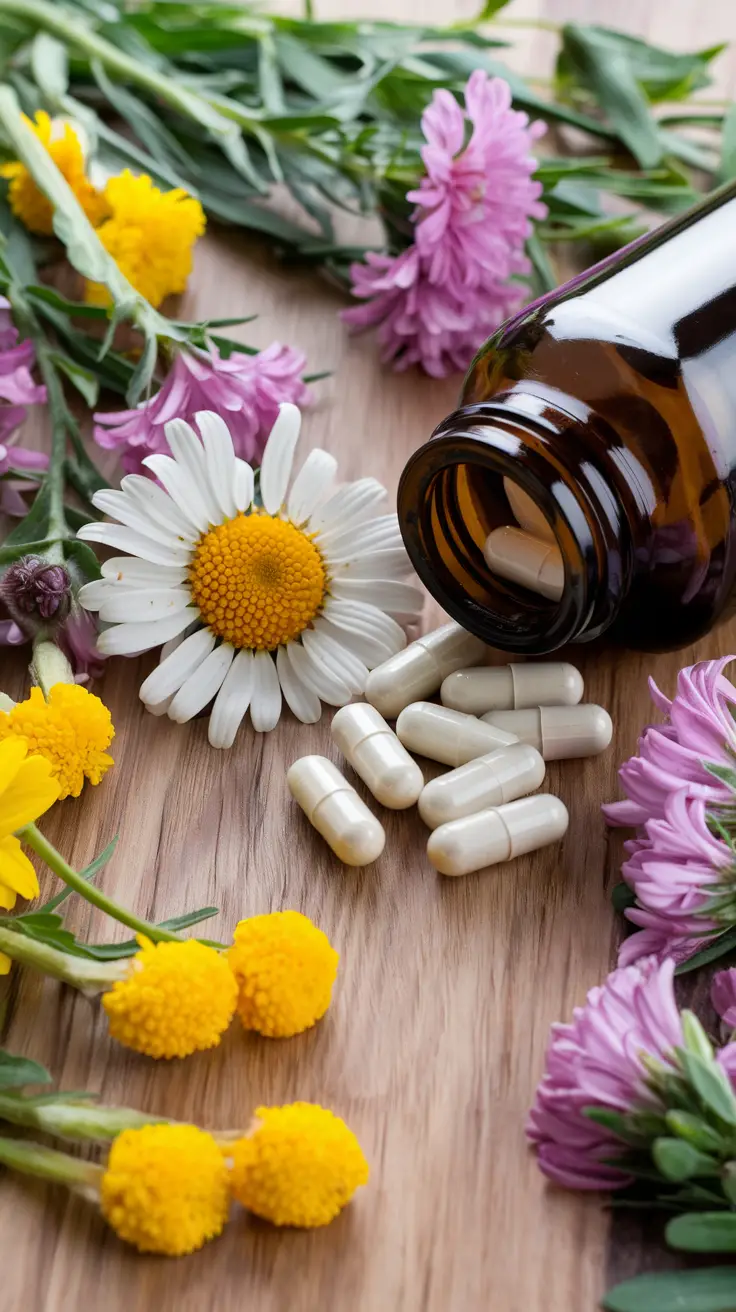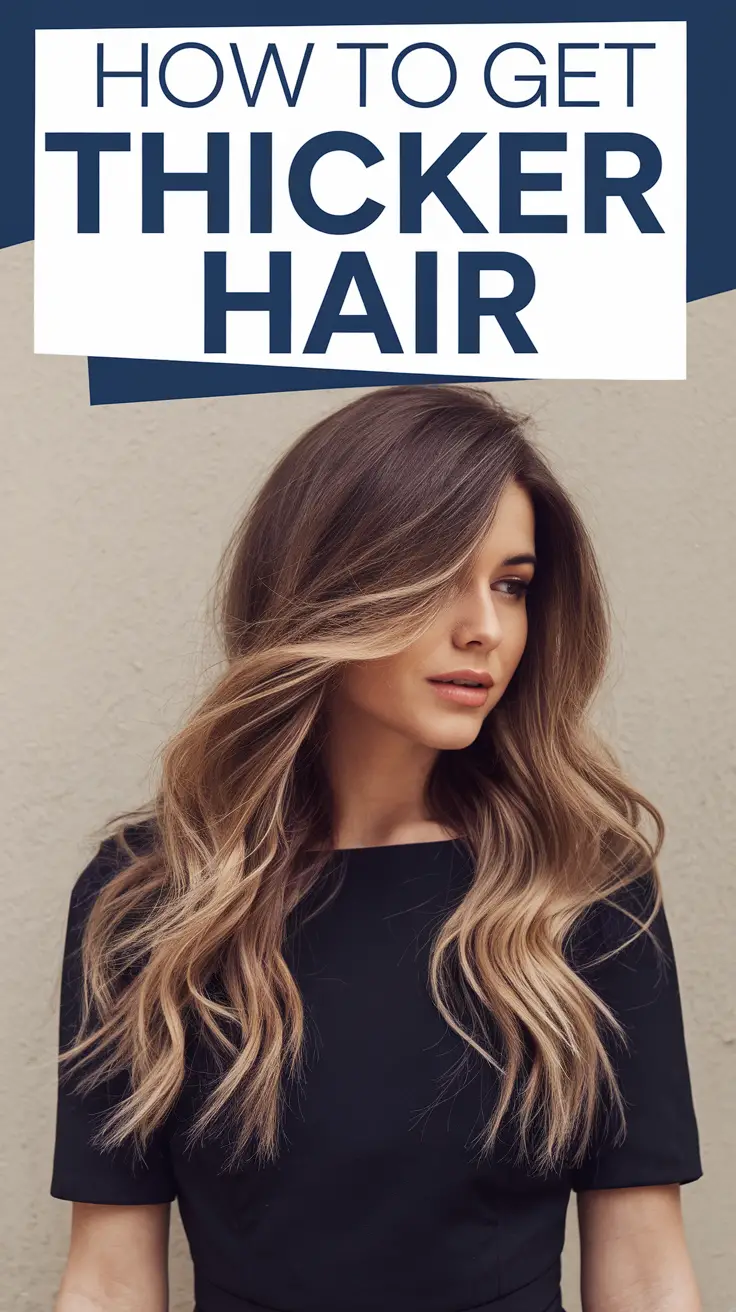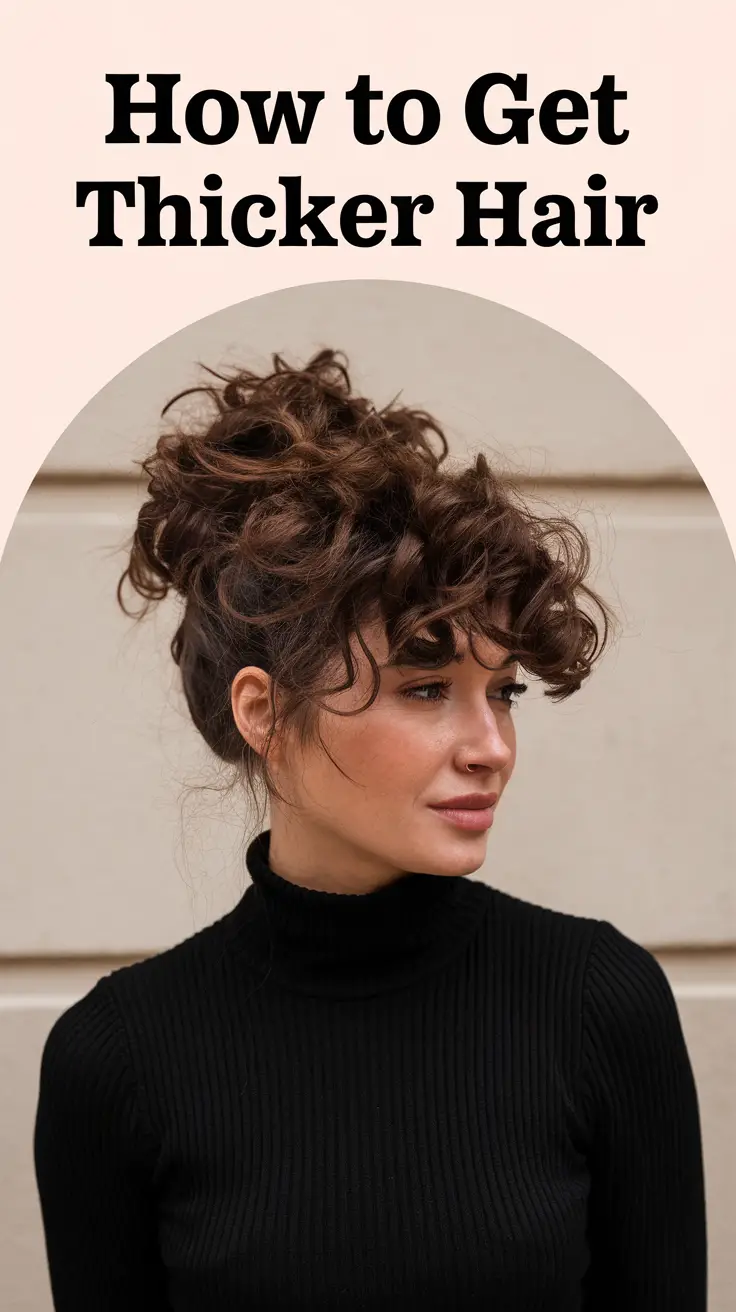How to Get Thicker Hair
Achieving thicker hair is a goal many of us strive for, and it’s a journey I’ve personally navigated with great success. Through years of research, trial, and error, I’ve uncovered effective methods to improve hair thickness and overall health. Here, I’ll share a comprehensive guide that blends science, experience, and practical advice to help you achieve fuller, healthier hair.
Understanding Hair Thickness
Hair thickness is influenced by genetics, diet, health, and hair care practices. While you can’t change your genetic makeup, you can optimize other factors to significantly improve your hair’s density and vitality.

1. Nourish Your Hair from Within
A healthy diet is essential for thick, strong hair. Your hair needs nutrients to grow, and deficiencies can lead to thinning.
| Nutrient | Role in Hair Health | Food Sources |
|---|---|---|
| Proteins | Builds keratin, the protein that forms hair structure. | Lean meats, fish, eggs, beans. |
| Omega-3 Fatty Acids | Nourishes scalp, reduces inflammation, promotes growth. | Salmon, mackerel, walnuts, flaxseeds. |
| Iron | Prevents hair loss by delivering oxygen to hair follicles. | Spinach, red meat, lentils. |
| Biotin | Strengthens hair and prevents breakage. | Eggs, almonds, sweet potatoes. |
| Zinc | Supports hair tissue repair and growth. | Pumpkin seeds, chickpeas, oysters. |
Additional Tip:
Drink plenty of water to keep your scalp hydrated, and consider adding collagen supplements for added benefits.
2. Prioritize Scalp Health
A healthy scalp is the foundation for thick hair. Here are ways to improve scalp health:
Scalp Massages
- Why: Stimulates blood flow, promoting hair growth.
- How: Use your fingertips or a scalp massager. Incorporate oils like rosemary or peppermint oil, which have been shown to improve hair density.
Exfoliation
- Why: Removes dead skin cells and product buildup.
- How: Use a gentle scalp scrub (sugar mixed with coconut oil) once a week.
Hair-Friendly Products
- Avoid shampoos with sulfates and parabens.
- Choose shampoos and conditioners with biotin, keratin, and caffeine.
- Use a clarifying shampoo once a month to remove residue.
| Hair Care Product | Benefit | Example Ingredients |
| Sulfate-Free Shampoo | Gentle cleansing without stripping natural oils. | Aloe vera, coconut oil. |
| Volumizing Conditioner | Adds body and texture to fine hair. | Biotin, keratin, collagen. |
| Hair Serums | Protects and strengthens hair strands. | Argan oil, vitamin E. |
3. Use Natural Remedies
Traditional remedies can complement your hair care routine:
- Egg Masks: Rich in protein, these strengthen hair. Apply 2 beaten eggs to your scalp, leave for 20 minutes, and rinse with cool water.
- Aloe Vera: Hydrates the scalp and boosts hair growth. Massage fresh aloe vera gel into your scalp and leave it on for 30 minutes before washing.
- Castor Oil: High in vitamin E and fatty acids. Apply to the scalp and hair, leave for 30 minutes, then wash out.
- Fenugreek Seeds: Soak seeds overnight, blend into a paste, and apply to the scalp to nourish hair and prevent shedding.
4. Minimize Hair Damage
Hair damage often leads to thinning. Here are ways to prevent it:
Limit Heat Styling
- Use heat tools sparingly, and always apply a heat protectant.
- Opt for air-drying whenever possible.
Protective Hairstyles
- Avoid tight ponytails or buns that can cause breakage.
- Use silk or satin pillowcases to reduce friction while sleeping.
Regular Trims
- Trim every 6-8 weeks to remove split ends and maintain healthy hair.
5. Explore Advanced Treatments
For severe thinning or hair loss, consider professional options:
Over-the-Counter Treatments
- Minoxidil: Proven to stimulate hair growth.
- DHT Blockers: Target hormonal causes of hair loss.
Professional Treatments
- Platelet-Rich Plasma (PRP): Stimulates follicles by injecting growth factors.
- Low-Level Laser Therapy (LLLT): Encourages hair regrowth through light stimulation.
- Hair Transplants: For permanent solutions to advanced hair loss.
Consult a dermatologist to determine the best option for you.
6. Manage Stress and Lifestyle Factors
Chronic stress can trigger hair thinning. Here’s how to reduce its impact:
- Exercise: Promotes blood flow and reduces cortisol levels.
- Meditation: Helps manage stress effectively.
- Sleep: Aim for 7-9 hours of quality sleep to maintain hormonal balance.
7. Understand Myths vs. Facts
There are many misconceptions about hair thickness:
- Myth: Cutting hair makes it grow thicker.
- Fact: Hair appears thicker after a cut due to even ends but does not grow thicker.
- Myth: Hair oils clog pores.
- Fact: Natural oils, when used correctly, nourish hair and scalp without clogging.
Conclusion
Achieving thicker hair is a holistic process that involves diet, scalp care, and the right products and treatments. With consistent effort, you can significantly improve the health and appearance of your hair. If you’re struggling with severe hair loss, consult a dermatologist for tailored solutions.
Start implementing these tips today, and you’ll be on your way to thicker, healthier hair.
FAQs
Q1: How long does it take to see results? Hair growth is gradual; expect visible improvements in 3-6 months with consistent care.
Q2: Are supplements necessary for thicker hair? Supplements can help if you have deficiencies but are most effective when paired with a healthy diet.
Q3: Can natural remedies replace professional treatments? Natural remedies work well for mild issues but may not be sufficient for severe hair thinning.
Q4: Does hair type affect thinning? Yes, different hair types may respond differently to treatments. Curly or coily hair may need extra hydration.
Q5: What’s the best way to choose hair products? Look for products with nourishing ingredients like biotin, keratin, and natural oils, and avoid sulfates and parabens.



